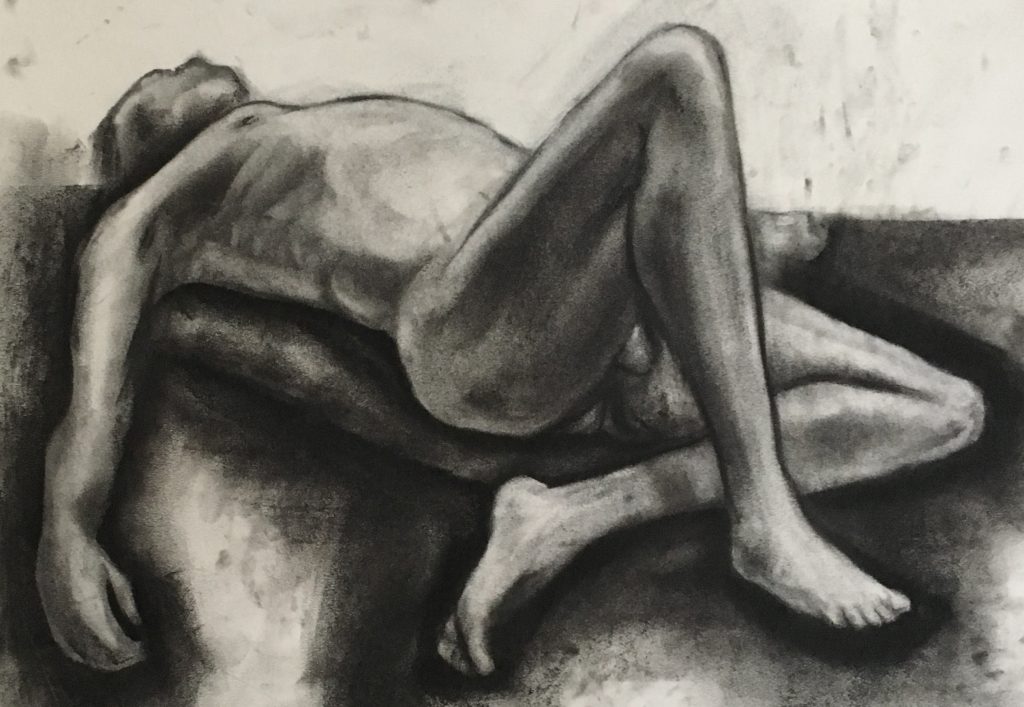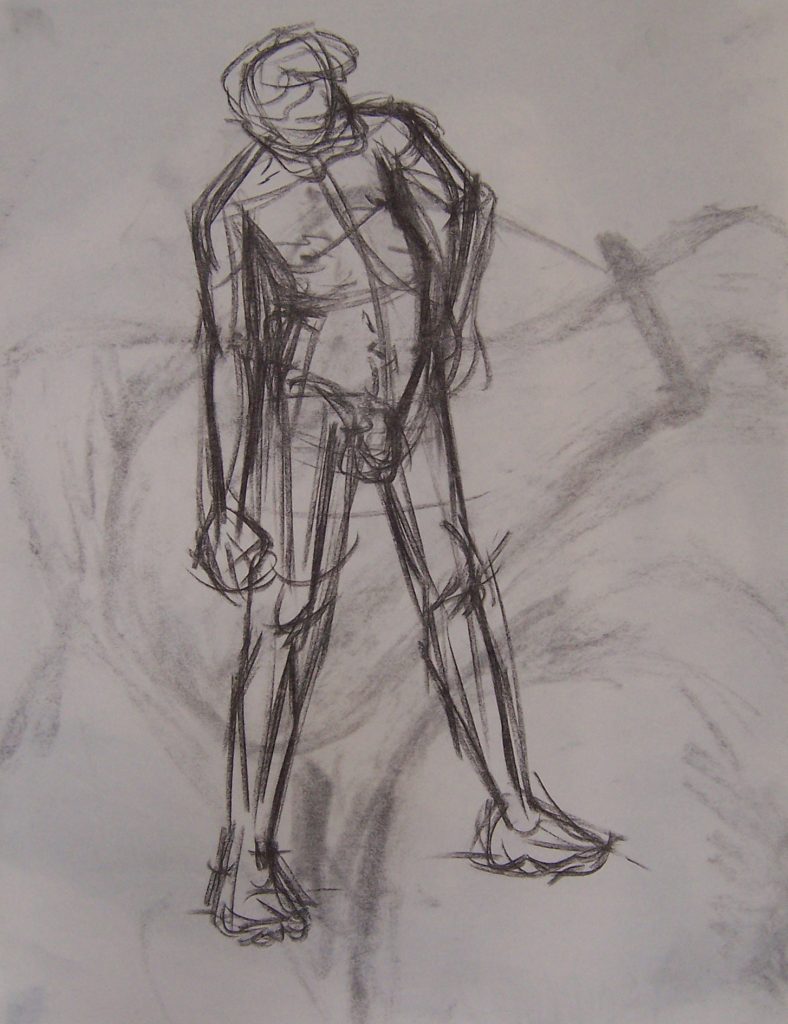Teaching
Undergraduate Courses:
Two-Dimensional Design
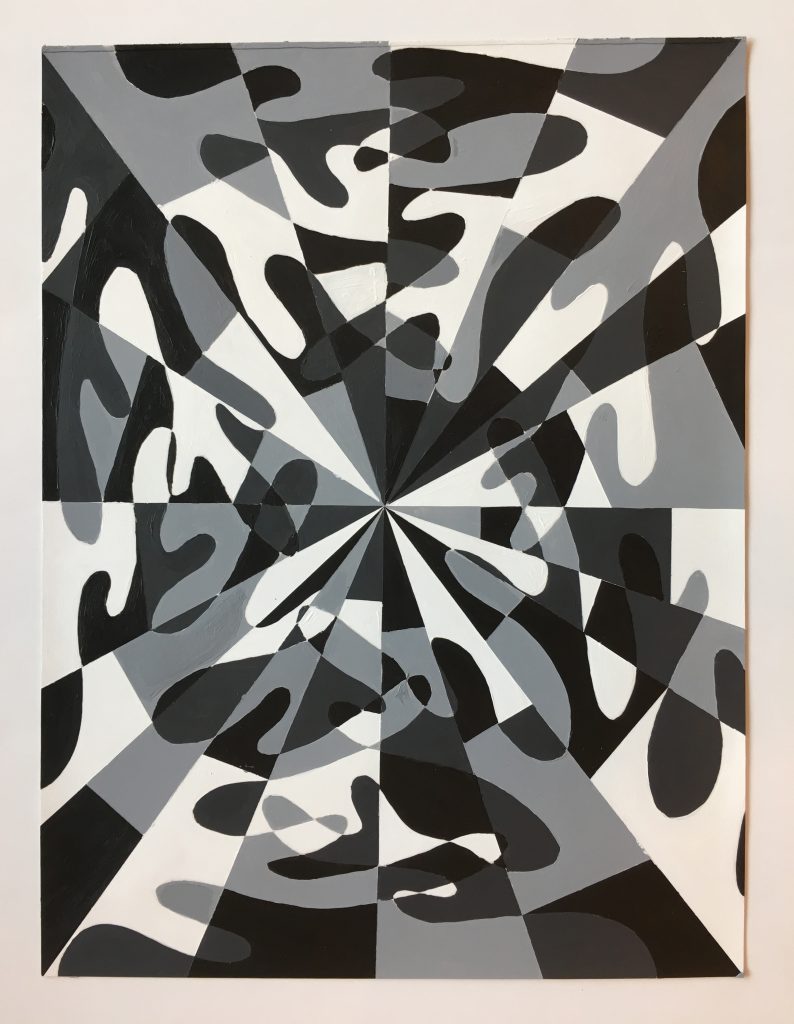

L: Student Work, Value Composition, R: Student Work, Design in Monochromatic & Complimentary Colors
Learning Outcomes:
Demonstrate an awareness of the formal elements of composition.
Identify and understand the essential principles of visual organization.
Investigate a series of design problems through a creative process, achieving individual solutions to each exercise.
Evidence an ability to discuss and critique two-dimensional work using design vocabulary to verbalize concepts.
Demonstrate a working knowledge of the fundamental principles of 2D design.
Produce a series of works that demonstrate a comprehension and exploration of fundamental design principles.
Color Theory and Light
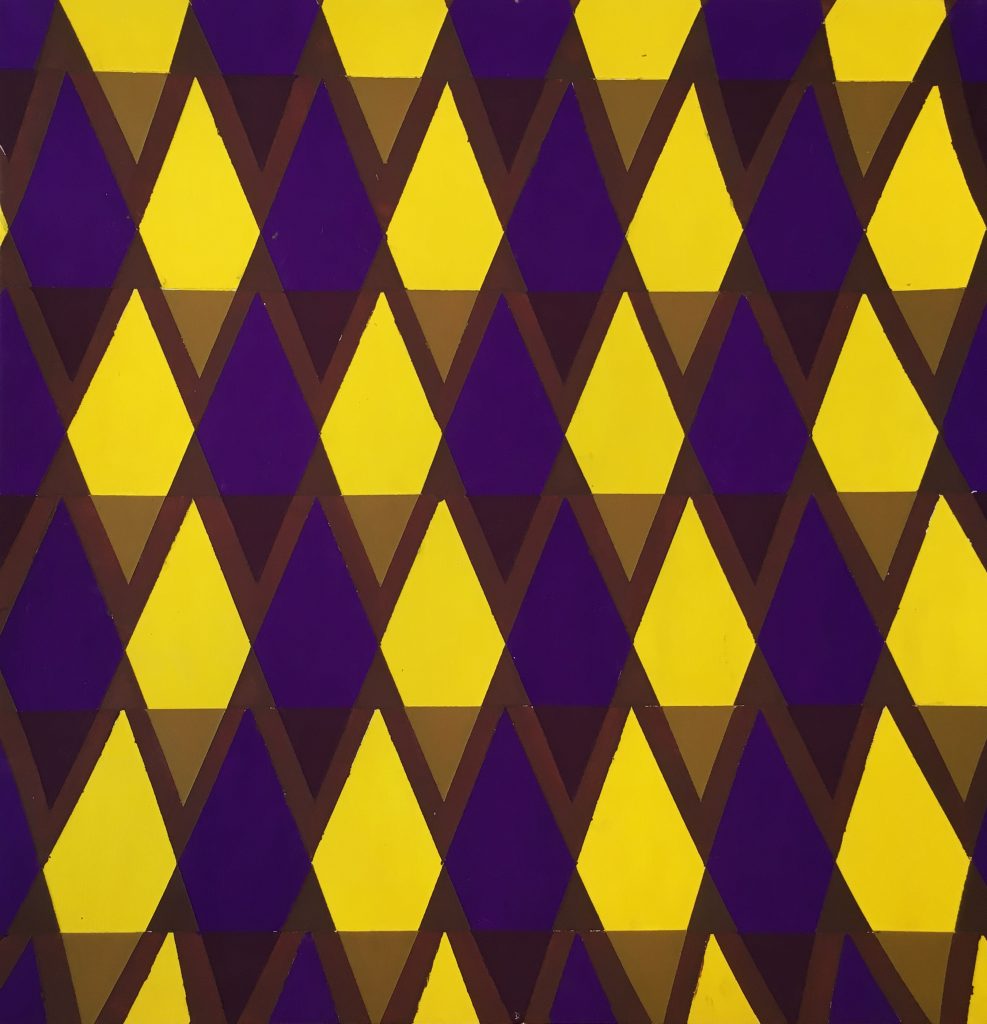

L: Student Work, Complimentary Composition, R: Student Work, Self-Portrait Exploring Emotion and Color
Learning Outcomes:
Acquire an understanding of conventionally accepted color theories.
Acquire a basic understanding of the physics of light and color perception.
Experiment with a range of different approaches to the use of color in art and design works.
Problem-solve and research ideas and techniques as needed.
Apply color theories to individual creative exercises, discovering unique and exciting results.
Integrate and synthesize topical and historical processes.
Learn to feel comfortable with taking chances and expressing ideas.
Drawing I
Learning Outcomes:
Through the study of drawing students develop careful observation skills, visual sensitivity, and creative problem solving skills.
Through class projects students will apply the fundamental principles of drawing including: line, shape, value, texture, and space.
Class projects will encourage experimentation with various drawing media, and students will learn to identify the similarities, differences, and relationships among those media, and to manipulate each media.
Through critiques students will learn to describe and analyze drawings and the expressive effects of different visual choices.
Drawing & Composition II
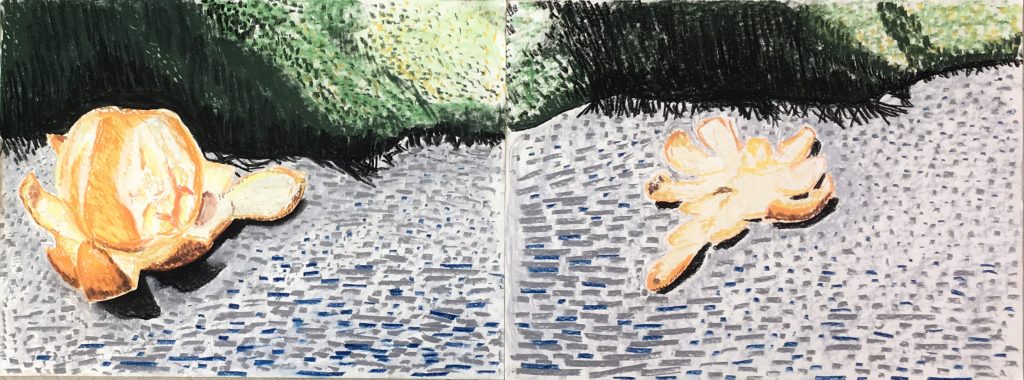
Student Work, “Transformation” Drawings
Learning Outcomes:
Develop the ability to see, respond to and interpret a variety of subject matter with increasing accuracy and sensitivity.
Demonstrate an understanding of the fundamentals of objective/observational drawing: line, value, perspective, composition, etc.
Develop reflective habits of mind that will lead to thoughtful evolution of visual ideas.
Develop a positive and open attitude toward class critique and instructor feedback.
Demonstrate a capacity to communicate an understanding of the drawing process.
Develop the ability to make visual decisions based on a concrete understanding of drawing skills and informed by personal and intuitive responses to a subject.
Figure Drawing
Learning Outcomes:
Through intensive study of the figure, students will apply the fundamental principles of drawing, and advance their observational drawing skills.
Class assignments will help students to develop their abilities in the two-dimensional representation of form and space.
Students will become familiar with the historical spectrum of drawing through lectures.
